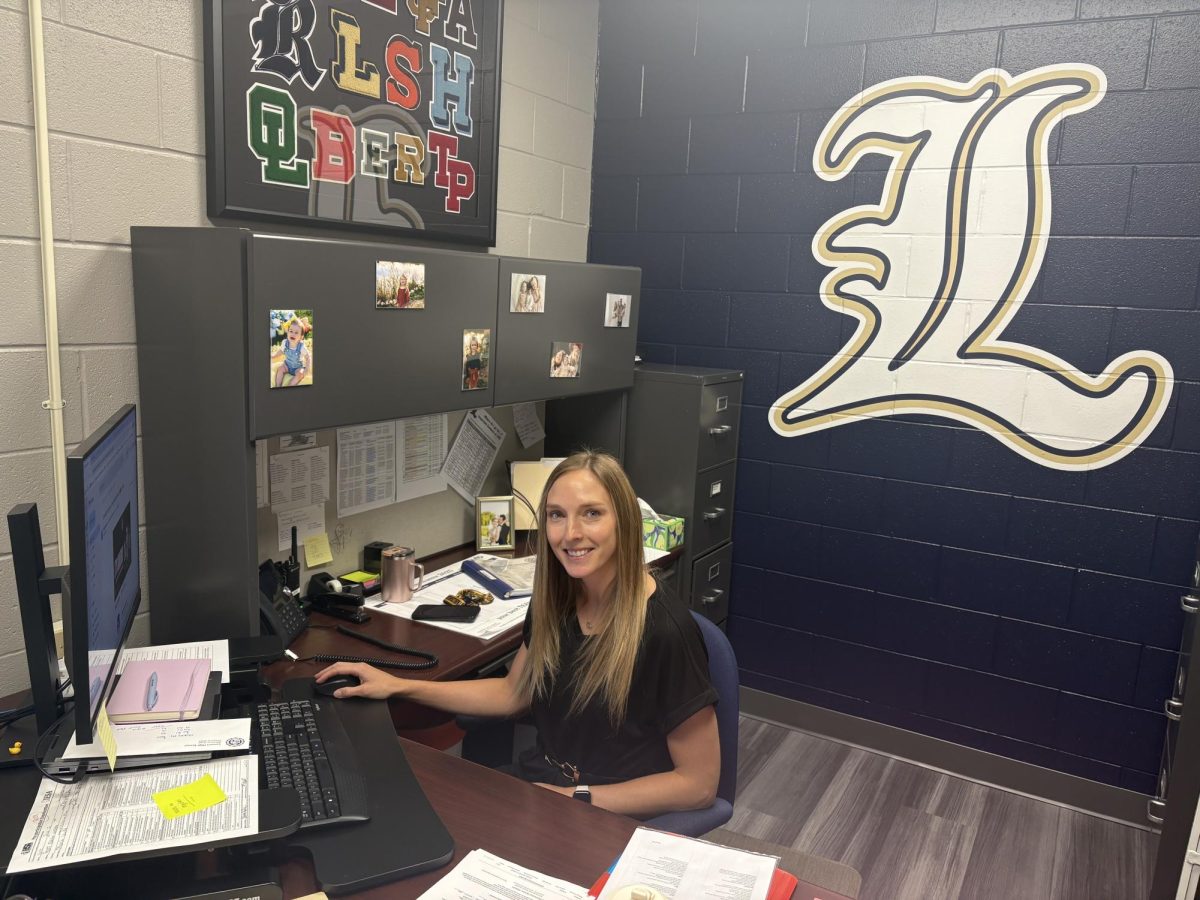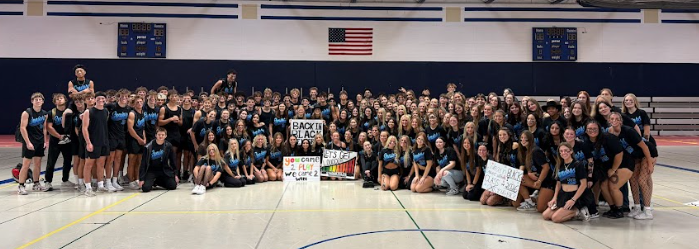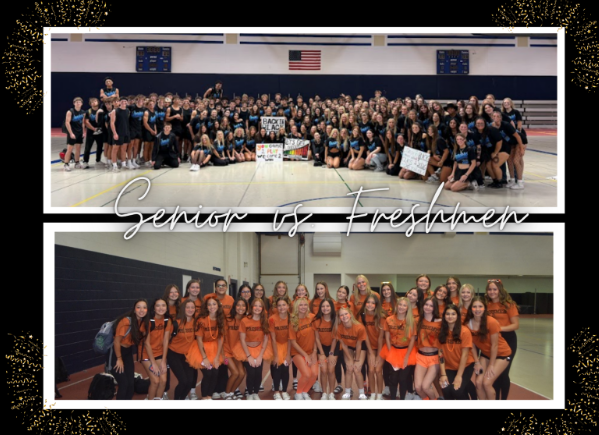It is no surprise senior year brings a variety of emotions. Students are cloaked in anxiety for college, excitement and nostalgia for the end of an era. However, the main emotion that is felt is stress. Whether that stress is stemming from classes or the infamous college application season, it is a nerve-racking time of year. So to help decrease stress as much as possible, here is a guide with some tips from faculty and seniors for the upcoming classes.
College applications open Aug. 1 every year for the following school year, meaning you can begin submitting on this day. On the website “Common App”, students are able to research schools, look at statistics and most importantly, submit applications. Through the “Common App”, students find the requirements for each school, including supplemental essays, GPA average, needed letters of recommendation and more.
Whether you are applying in or out of state, if you are a senior or junior, you are not alone in feeling anxious about college application season.
“I felt extremely stressed about submitting college applications, especially during the week leading up to the early application deadline of Nov. 1,” senior Emma Manthey said.
This year, college application deadlines began Nov. 1. Students applying by this day are applying for early action, meaning they are applying early and will receive a decision well in advance of the college’s regular response date.
This is a good option for students who want to get applications out of the way early. Additionally, early action applications are usually required if you want to join a college’s honors college or any additional programs that the school offers.
The next date is Jan. 1, the regular decision deadline for most schools. Students need to submit their application by this date and will receive a response in a clearly stated period of time, varying depending on the school.
Moving on to your actual application, a major part is the required essays.
“I think the thing that scared me about college applications were the amount of different questions each college had, especially when I had to write my entire transcript like five times,” senior Ruby Kraker said.
Most colleges ask for a personal statement that answers a prompt found on the Common App. You are given seven prompts, each regarding a conflict, challenge or experience that shaped the person you are today, and are required to answer one in an essay between 250-650 words.
This essay should reflect who you are as a person. This is your opportunity to show colleges who you are and your strengths in the classroom and as an individual. Rather than state what you have accomplished, try to highlight how those accomplishments have personally impacted you and made you grow.
Additionally, depending on the college, you will be asked to write supplemental essays that are usually shorter in length compared to the personal statement.
“I had to write supplemental essays for eight out of nine colleges I applied to. They were mostly about why I wanted to attend the school or the reasons for choosing the major that I did,” Manthey said.
Any supplemental essays can be found under the “writing” tab on the Common App when viewing your application for a specific school.
“Common App has a lot of resources within their site and Schoolinks’ ‘Help’ section has both video and written ‘lessons’ for specific topics,” Denise Dalton, school administrator, said.
Some students spent their whole summer preparing their essays for Aug. 1, while some were unaware of when applications even came out. The best way to be aware of all your requirements is to start ahead of time.
“I recommend starting the process as soon as possible,” Manthey said. “Don’t procrastinate everything until the last minute, because there are many components to your application that take time to assemble and perfect. If you have time, you can work on your applications in the summer by filling out your Common App.”
Additionally, do not be afraid to ask for help on your essays. Take advantage of your English teachers and feel free to ask for pointers, tips or constructive criticisms. Teachers are here to help and they can make your application stronger.
Another major component to make your application stand out is what others have to say about you: letters of recommendation. When deciding what teacher(s) to ask for letters of recommendation, it is important to choose a teacher that knows you inside the classroom and outside as a person.
“The advice teachers are now getting is that colleges want a personal experience the teacher had in class with the student,” Sara Armbrecht, English teacher, said. “A specific time that the student impressed the teacher. If you can remember an experience like that (maybe you went out of your way for another student in class, a random act of kindness, participated, or grew or challenged yourself in some way) and the teacher noticed, I would use that person.”
In addition to specific events, feel free to give your recommender a list of any clubs, achievements or anything else you want them to include in their letter.
Once you have decided what teacher(s) to ask, it is important to be respectful. You will be asking this person to write on your behalf, so it is important to give them the respect they deserve since they spend a lot of time writing these letters.
“Always ask in person and say thank you after it is written,” Armbrecht said. “About half of the students ask me in person, and the rest send me an email asking… I have actually had students never actually ask, and then their name pops up on my common app. They added me without my knowledge.”
In addition to asking in person, it is important to give your recommender at least two weeks to write your letter but earlier is always better. Some teachers get asked more so they only can do so much before they have to tell students no.
While filling out applications may seem like a formidable opponent to students, help from teachers, counselors and other staff are always within reach. Administrators know everything about everything when it comes to college applications.
“They [counselors] do a lot of one-on-one as kids need it through the springtime and the summer before senior year,” Dalton said. “But then at the start of senior year, they meet with all the seniors to see what they need.”
With the help of staff members like Dalton, Common App is easier to navigate and makes applying to college less about stress and more about adventures for the future. With the help of our counselors, many students have found application season to contain less stress.
In addition to the Common App, a recent addition to the college application journey is the website, Schoolinks. Similar to the Common App, Schoolinks showcases deadlines, requirements and more that help guide students through the application process.
It is a good place to start searching for schools and scholarships, but has received mixed reviews from current seniors.
“Honestly, schoolinks was just another stressor when applying to colleges,” Kraker said. “I guess it was nice because it showed you a list of your colleges that still needed requirements, otherwise, it was kind of a waste of time.”
While staff like Dalton are very excited about this new addition to the application process, seniors are still learning how to navigate it. Give yourself enough time to navigate the different websites and narrow down your requirements.
“Advice for next year’s seniors: work a little bit earlier. That November deadline seems to hit really fast, so… [have] a good sense of deadlines,” Dalton said.
While all these deadlines and advice may seem overwhelming, do not let it intimidate you and limit your goals.
“Reach for that school that you think is unreachable but is your dream school,” Armbrecht said. “You never know what may happen, and you don’t want to forever regret the ‘what if’. On the other hand, not getting into your dream school for sure will not end your chances for success. Life is truly what you make of it. Work hard wherever you are at, and you will reap the rewards.”









